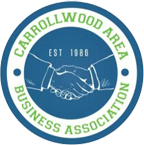Tampa Injury Attorney Answers Frequently Asked Questions About Auto Accidents in Florida
If you’ve been hurt in a car accident in Tampa, it can be difficult to know what to do at the scene or afterward to protect your legal rights. If you are dreading a call to the insurance company or have already been told that their driver wasn’t at fault, that you were partially at fault, or that the damage to your car wasn’t that bad so you must not be seriously hurt, then you might be reasonably confused or worried about who is going to pay your medical bills and other damages. Knowing what to say and do after a crash and knowing a little bit about the law of negligence and car accidents in Florida, can help you protect yourself and proceed with your claim with more confidence.
Below we offer answers to some of the questions we hear most often from people who have been injured in a car accident in Tampa. If you have other questions or if you have recently been in a wreck, call Moore Law at 813-510-5400. We offer a free case evaluation and take auto accident cases on a contingency fee arrangement, meaning we pay all costs to pursue your case upfront and only take a fee after we are successful in getting compensation for you through an insurance settlement or taking your case to court. Call Moore Law today for help from an aggressive personal injury law firm that goes above and beyond in treating clients with care and respect. Don’t settle for less. Get Moore.
What do I do after an auto accident?
The most important thing to do after a car accident is to make sure you are okay. From there, you can decide the appropriate situation for you. Taking the following steps at the scene of the accident and in the days following can help protect your rights to pursue a claim for full compensation, whether using your no-fault PIP benefits or bringing a claim against the at-fault driver for a serious injury.
-
Call 911. The police can collect the name and contact information of both drivers, any witnesses to the crash, and your statements regarding the accident. The police will also produce a description of the accident and road conditions, and collect any evidence of driving under the influence, if applicable.
-
Collect your own info at the accident. You probably know to use your phone to take photos of an accident. When you can do so safely, it is best to get pictures and video of all vehicles involved, including the damage to all vehicles and their positions on the road. A quick picture of the parties involved can also come in handy should anyone deny they were at the scene. You should exchange contact information with the other driver, including each other’s insurance information (share the name of the company and policy number, but don’t include details such as coverage limits). If there are witnesses, you should also get their contact information.
-
Seek medical attention. You’ll probably know if you’ve suffered physical injuries. But many accident victims suffer internal injuries during an accident that do not cause noticeable outward symptoms for days or are initially manageable but worsen over time. Don’t disregard more common symptoms, such as headache or dizziness, which could be initial symptoms of traumatic brain injury. If you are visibly injured or in pain, consider going to the hospital or a walk-in emergency care center. Otherwise, follow up with a doctor as soon as you can after the accident. A doctor can look you over, order appropriate tests, and document your visit for medical and insurance purposes. Your initial medical care needs to occur within 14 days of the accident in order for your no-fault PIP benefits to apply. If you don’t have a regular doctor or your doctor does not treat persons involved in accident, we can recommend qualified, experienced physicians who will treat you regardless of your insurance situation.
-
Admit nothing and contact your insurance company. Even if you believe you know who was or was not at fault, a knowledgeable attorney can help you determine the right decision for you.
-
Call Moore Law in Tampa for a free consultation regarding your options and next steps. Your call is free, and we don’t charge any fee until after we recover compensation for you.
What if the driver who hit me didn’t have insurance?
Your first step after any crash will likely be a claim for no-fault PIP benefits through your own insurance. It won’t matter if the other driver was insured or not, so long as you have PIP coverage and meet certain other requirements, you will be able to have a portion of your medical expenses and lost wages paid for. However, if you are seriously injured and need to make a claim for more than no-fault benefits, the other driver’s insurance comes into play. In cases where the other driver does not have insurance, you can file a claim with your own insurance company under your uninsured motorist (UM) coverage, if you have it. Insurance companies must offer UM, but drivers are not required to purchase it. However, with a quarter of Florida drivers uninsured, it’s generally a good idea and reasonably affordable. You might still have to fight with the insurance company to get full value for your claim, but we can help with that.
If you don’t have UM coverage, you can settle with the uninsured driver personally or bring a lawsuit against them. If you win a judgment, you can collect by garnishing their wages, putting a lien on their property, or other means. It can be difficult to collect a sizeable judgment from a motorist who can’t afford liability insurance, so carrying UM coverage is typically a better option.
If the driver who hit me was speeding or texting while driving, but I wasn’t wearing my seat belt at the time of the crash, can I still sue the other driver for my injuries?
The other driver can seek to introduce evidence that you weren’t wearing your seat belt, and this fact could reduce the judgment you get against the other driver in proportion to the percentage of fault assigned to you for not wearing your seat belt. That driver would have the burden of proving that your injuries occurred or were made worse because you weren’t belted, which may or may not be the case depending on the facts of the collision – the speed of the crash, the angle of impact, the position of the seat and the seatback, and the type of injuries suffered. Your lawyer can help you get the full value of your claim when the facts don’t support holding you responsible for your injuries by failing to wear your seat belt.
Seat belts save lives. They are required by law, and we recommend you always buckle up for any trip. However, don’t let the fact that you weren’t wearing a seat belt keep you from calling an auto accident attorney if you’ve been hurt in a crash caused by a negligent, drunk or distracted driver.
What if the driver who hit me didn’t stop or drove away before we could exchange information?
Sadly, hit-and-run accidents are on the rise in Florida and elsewhere. At the same time, however, law enforcement agencies and private investigators have more tools than ever at their disposal to locate a hit-and-run driver and bring them to justice. Our team will work with law enforcement or investigators as appropriate to find the driver who hit you, and we’ll even pursue punitive damages against them for their gross negligence or intentional misconduct.
If the driver can’t be found, we can help you bring a claim under your Uninsured Motorist coverage. UM applies to hit-and-run drivers as well as uninsured drivers. Remember to have an attorney represent you in your UM claim to get the full value for your claim.








